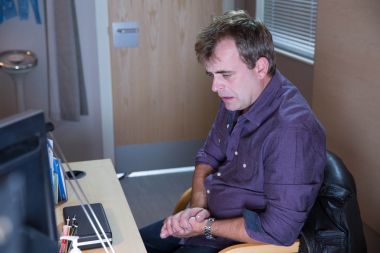The power of the popular: Should Christians engage more with the media?

Last night the website of the mental health charity Mind jammed because so many people tried to access it. The reason? Coronation Street had just aired, showing character Steve McDonald suffering a panic attack and being diagnosed with depression.
As well as wondering why it should take a soap opera episode to prompt people to seek help or information, I marvelled at the power of the popular when it comes to promoting a cause.
Sure, many of those who logged on to the Mind website would have done so out of curiosity, but some may have recognised symptoms in themselves or others.
Charities like Mind cannot buy this kind of publicity. Especially for causes where there is a still a stigma attached, a major character literally bringing issues to life in front of seven million viewers must have been a dream come true for its PR team.
Talking about the plot, actor Simon Gregson said he initially questioned the depression angle: "My first thoughts were, 'Hmm, have you chosen the right guy for the job?', because of the kind of comedy element and the silliness that Steve brings to the show."
But he soon realised it was a clever move. "If it could happen to Steve, it could happen to anybody," he told the Yorkshire Evening Post.
Of course there's an element of risk in dealing with popular media. The ruthlessness of the tabloids and Twitter is well-documented, as politicians of all types know all too well.
As far as attracting publicity goes though, it clearly does work and I've often wondered what could happen if Christians engaged more with the popular media?
And no I'm not talking about Christians who phone up talk shows with the sole intention (as far as I can see) of shouting down the person they disagree with on a range of subjects from gay marriage to Trick or Treating.
Neither am I thinking of targeting the Guardian/Telegraph and Thoughts of the Day on Radio Four/ Radio Two. Christians have pretty much got that covered, I reckon.
I'm thinking more Mirror, perhaps. Radio Five Live or Take a Break – the biggest selling women's weekly magazine in the UK for 20 years.
Or what about Mail online which set a new daily traffic record last month on the day of Oscar Pistorius' sentencing with 14.4 million browsers.
During a paper review at Greenbelt this year, I listened with interest to the communications head of an international development charity talk about trying to place stories in the media.
He told the audience (not typical Mail readers I'd imagine) he regularly targeted the Mail because they had the financial resources and editorial will to send a reporter to an overseas crisis that could otherwise be ignored.
These are murky waters for some and coverage in certain newspapers may not be worth the political compromise. I remember well the furore two years ago when the Archbishop of York John Sentamu wrote a column for the Sun on Sunday.
But I remain concerned about the readers, viewers and listeners.
I remember listening to a Christian talking on the radio about how she'd managed to forgive a man who had murdered her son. I imagined hundreds of people also listening; a powerful story of grace floating into kitchens, workplaces or cars.
Then there was Veronica Buttigieg, a woman who had given away a kidney to a stranger she'd met at a party because she felt God had told her to.
Veronica was down to earth, likeable and straightforward and happily shared her faith in a natural way through her story. I first heard her on Radio Five Live and she was interviewed by nearly every national newspaper and major TV show in the UK.
These are just two examples. There are thousands more. What could happen if Christian organisations and individuals made a conscious effort to engage the popular media with stories of forgiveness, compassion and hope?
Sarah Lothian is a freelance journalist.











